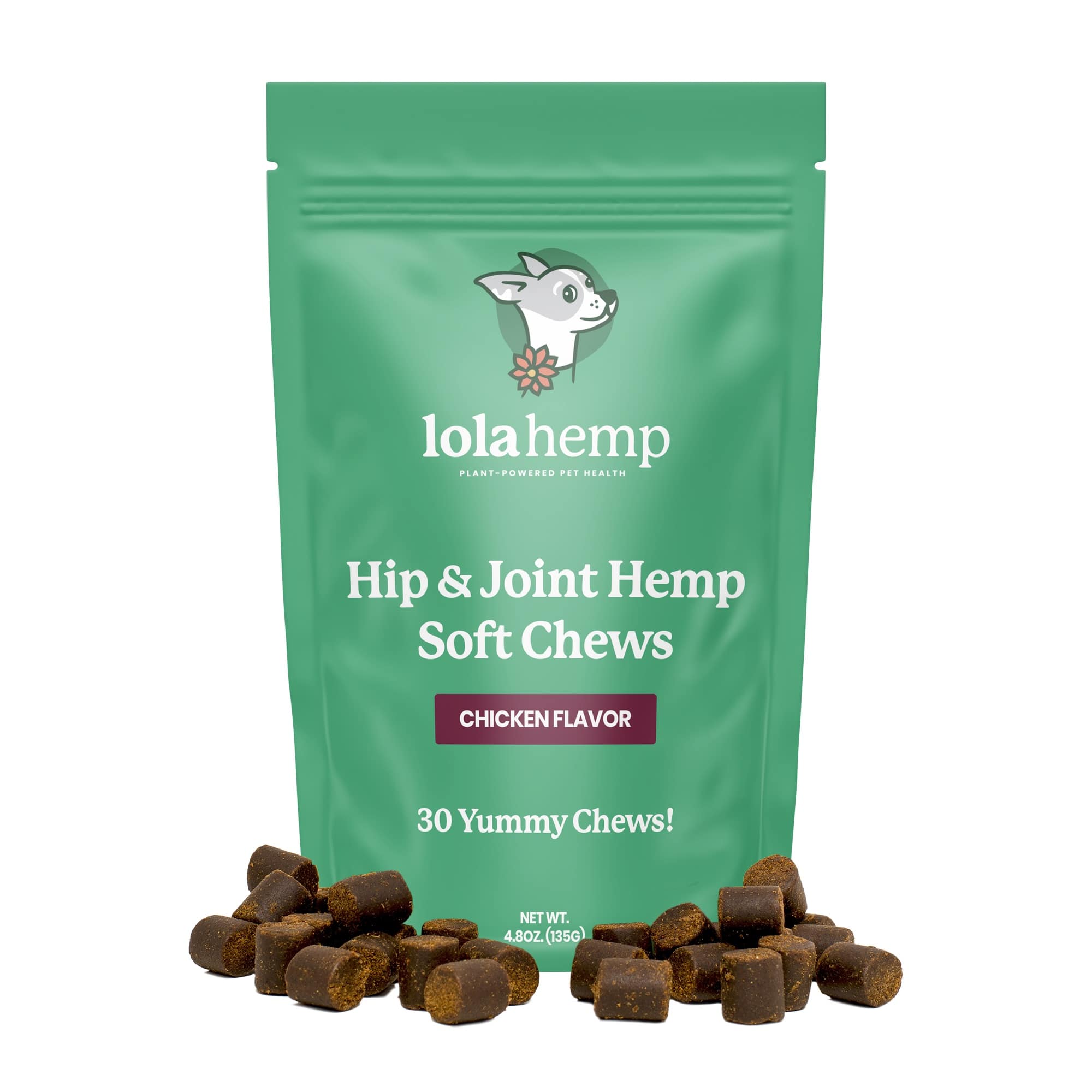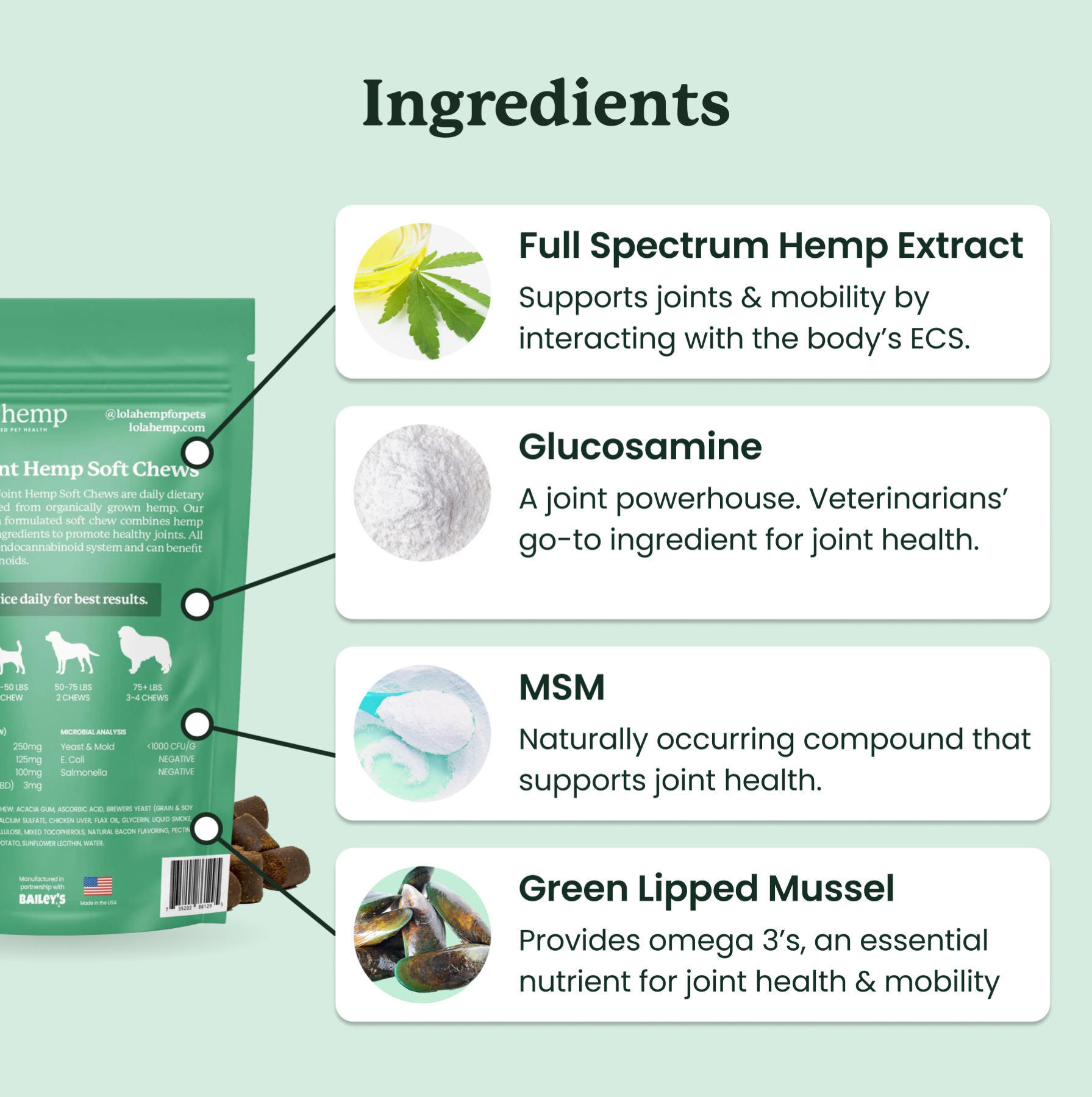If you have a senior dog or a pet struggling with mobility issues, you may be wondering whether this is just a passing fad. All you want is to support your dog as much as you can.
Preliminary research suggests that CBD hemp dog treats could support your dog’s overall ability to find relief from discomfort associated with issues like arthritis. Let's learn more.
Can Hemp Treats Help Dogs with Joint Pain?
Hemp treats and chews can offer some support to dogs experiencing joint pain. The primary compound in hemp, CBD, interacts with the endocannabinoid system to influence pain perception and joint function.
In this way, CBD can make your dog more comfortable in the face of these issues. On one hand, the experience of their discomfort can be dampened.
On the other hand, the underlying issues causing their discomfort may improve with consistent use of CBD treats or oils, although they're not guaranteed to.
Overall, hemp treats are safe and potentially very effective options for your dog. Although you don't need a prescription to purchase CBD chews for your dog, it's always recommended to discuss the idea with your veterinarian.
Overall, Is Hemp Good for Dogs' Joints?
Hemp and its compounds can be very helpful for dogs with joint issues. Many dogs who use high quality hemp treats and hemp oils see a significant improvement in their overall quality of life.
Hemp can help to lessen the discomfort that dogs feel in their mobility struggle, while simultaneously providing support that can improve their ability to function normally again.
Is It Safe to Give Dogs Hemp Treats Every Day?
Yes, it's safe to give your dog hemp treats every day so long as you give them the appropriate dosage according to their weight. Studies show that long-term daily feeding of CBD products is safe for healthy dogs.
You should also make sure that CBD won't interact with any of the medications your dog is already taking. Discuss these potential drug interactions with your veterinarian before using hemp or CBD products if your dog is using any other medications.
Are There Side Effects of Hemp Chews for Joint Pain?
While CBD is considered very safe for dogs in almost all cases, if you give your dog too much they could experience drowsiness or digestive upset. Adverse side effects could also occur from additional ingredients or additives used to make the treats.

How to Choose the Best CBD Soft Chews for Dogs with Joint Issues
When choosing CBD chews for your dog, look for these key features:
- Third-Party Testing: Ensure the product is tested by an independent lab for purity and potency. This helps confirm the product’s quality and consistency.
- Hemp Source: Look for CBD chews made from organically grown hemp. Organic hemp is free from pesticides, herbicides, and harmful chemicals.
- Ingredients: Check for natural ingredients and avoid products with artificial additives or preservatives. Also look for products with additional joint-supportive ingredients that could offer added benefits.
- Dosage Instructions: Follow the dosage instructions on the packaging or as directed by your veterinarian.
- Consult Your Veterinarian: Before starting any new supplement, including CBD, consult with your veterinarian to ensure it’s a good option for your pet’s specific health needs.
Final Thoughts
Hemp dog treats for joint pain may offer a beneficial addition to your pet’s wellness routine, especially for those with joint discomfort or mobility issues.
With proper research and veterinary guidance, you can explore whether CBD could be a suitable option for your furry friend. As with any supplement, it’s essential to approach it with informed decisions and consider your pet’s unique health requirements.
Frequently Asked Questions about Hemp Dog Treats for Joint Pain
Are hemp treats safe for dogs with arthritis?
Yes, hemp treats are generally considered safe for dogs with arthritis when given at proper dosages. Always consult your veterinarian before introducing any new supplement.
How long does it take for CBD dog treats to show results?
Some dogs may experience mild relief within a few days, while others may take several weeks of consistent use before showing improvement in mobility or comfort.
Can I give my dog CBD treats along with other medications?
CBD can interact with some medications. Always check with your veterinarian before combining CBD products with prescription drugs to ensure safe use.
What dosage of hemp treats should I give my dog?
Dosage depends on your dog’s weight and the product’s potency. Follow the manufacturer’s directions or consult your vet for precise guidance.
Do hemp treats make dogs sleepy?
In rare cases, dogs given too much CBD may become drowsy. If that happens, reduce the dosage and monitor your dog’s response.










